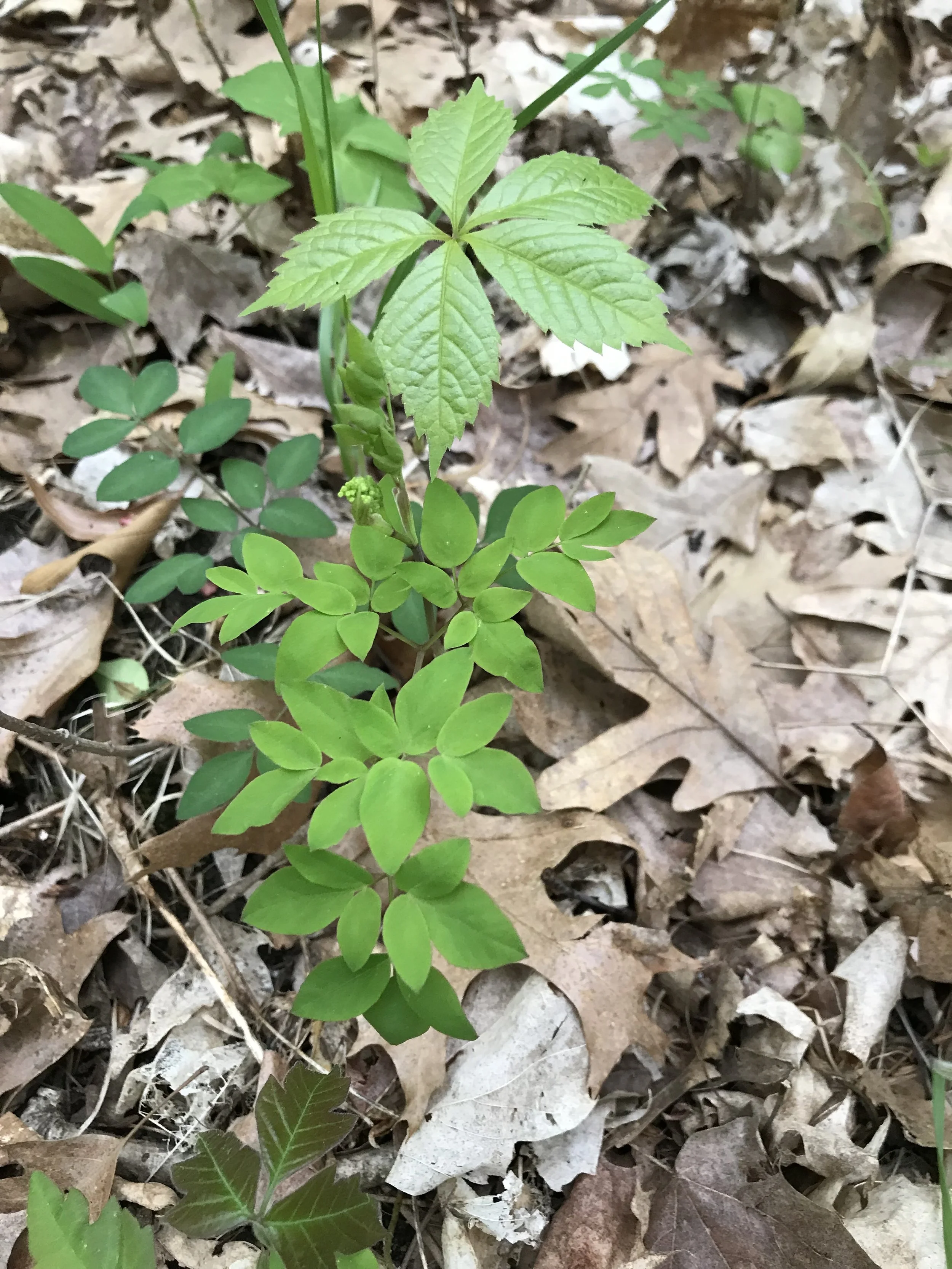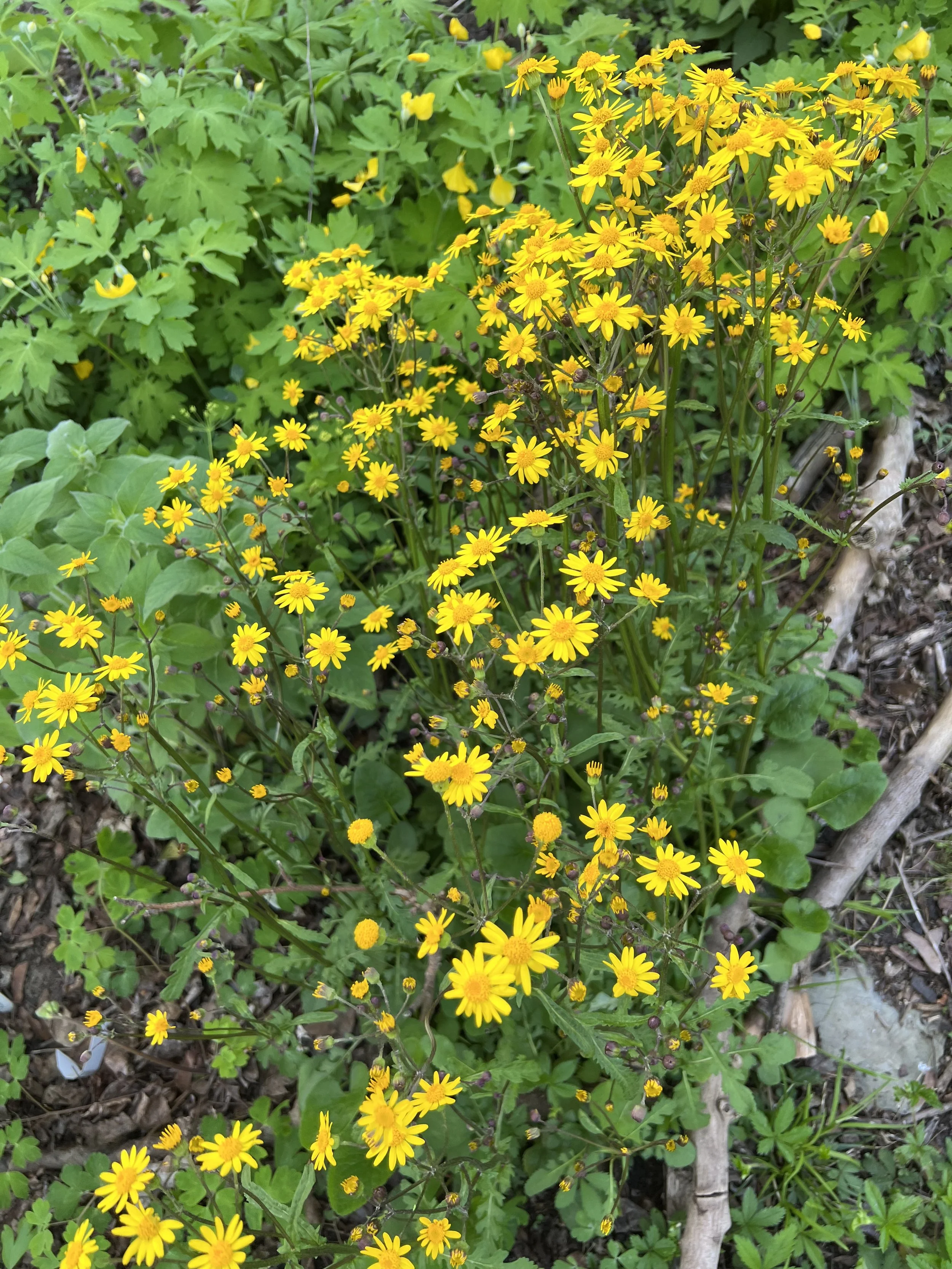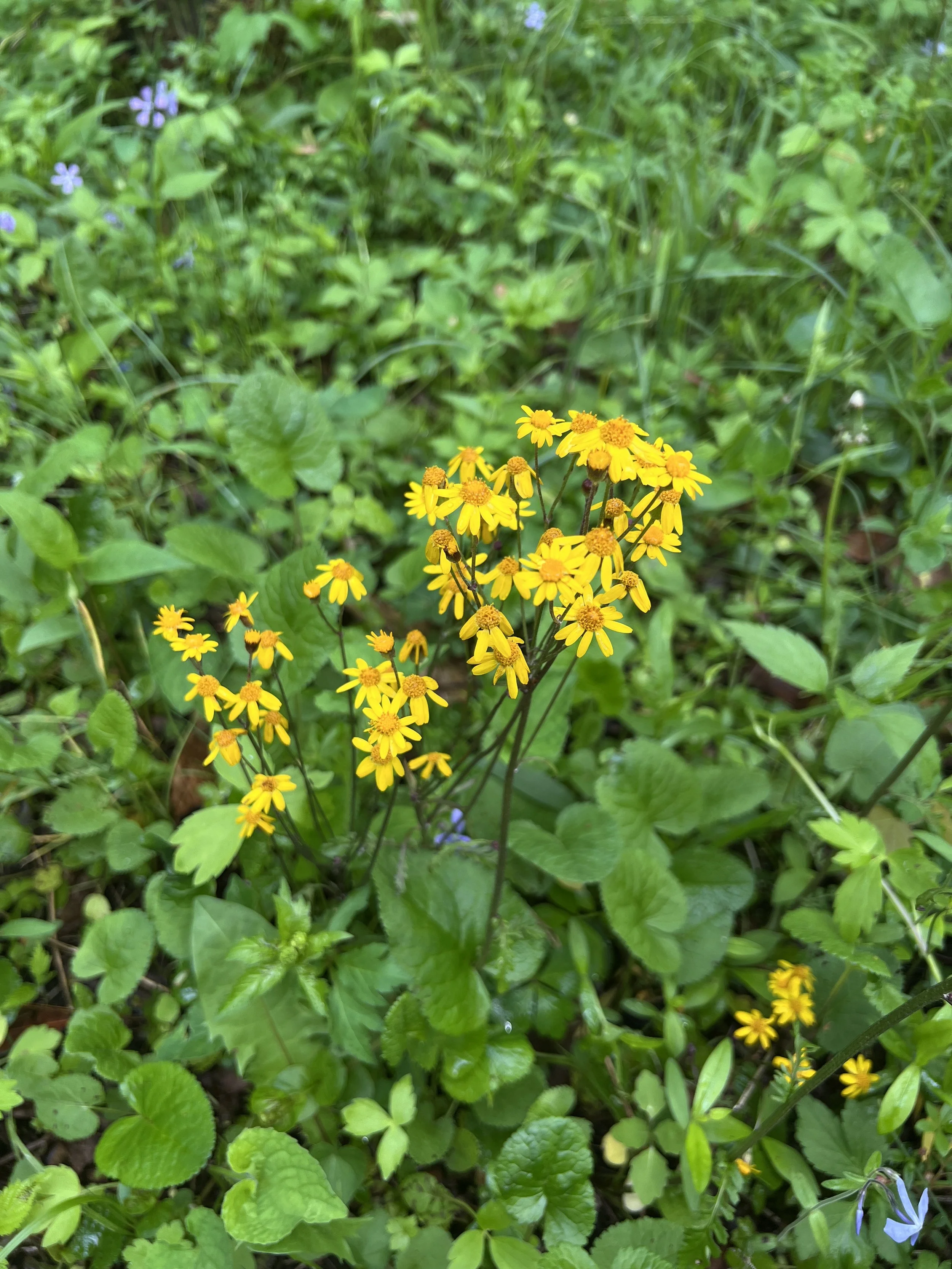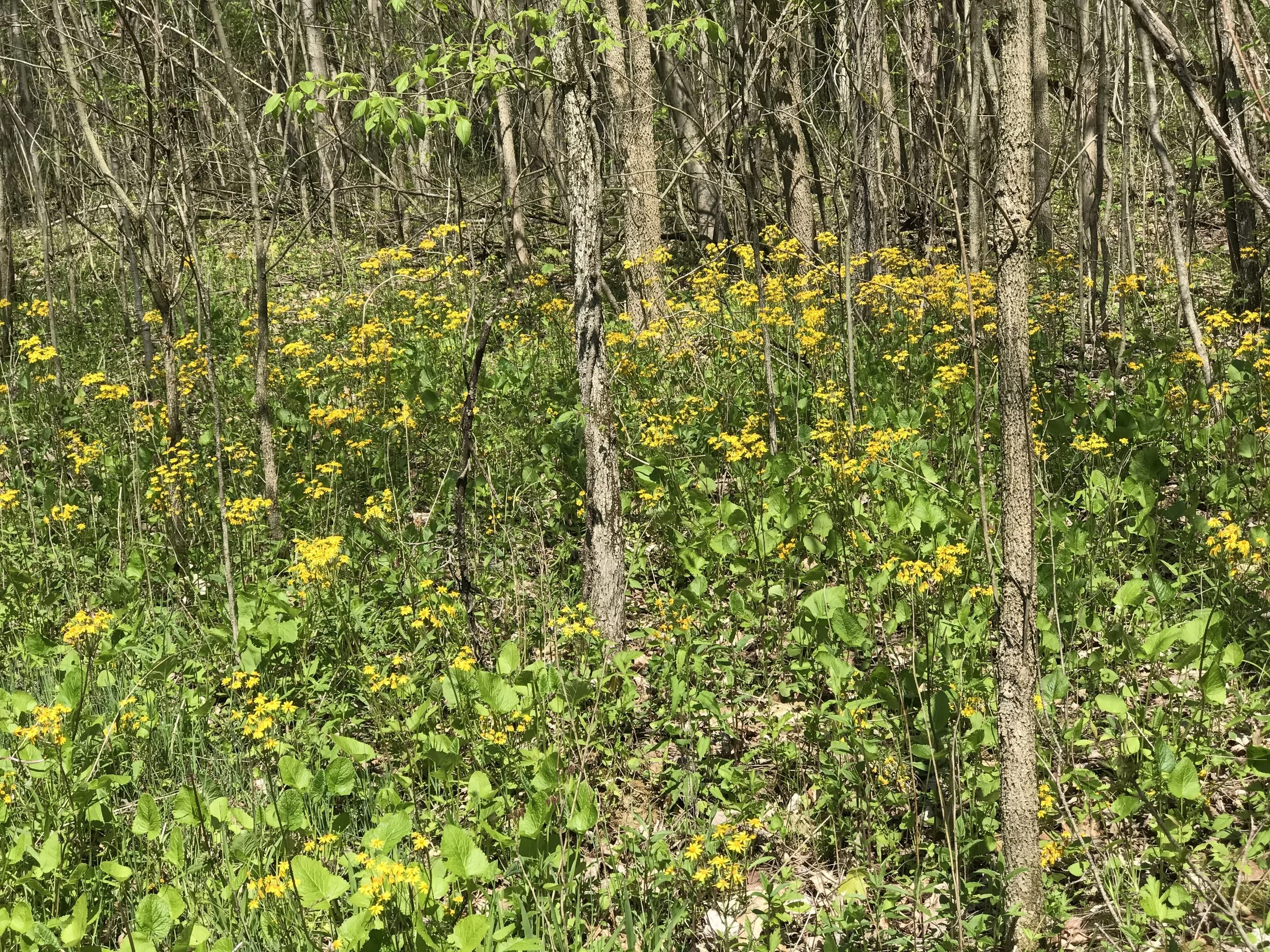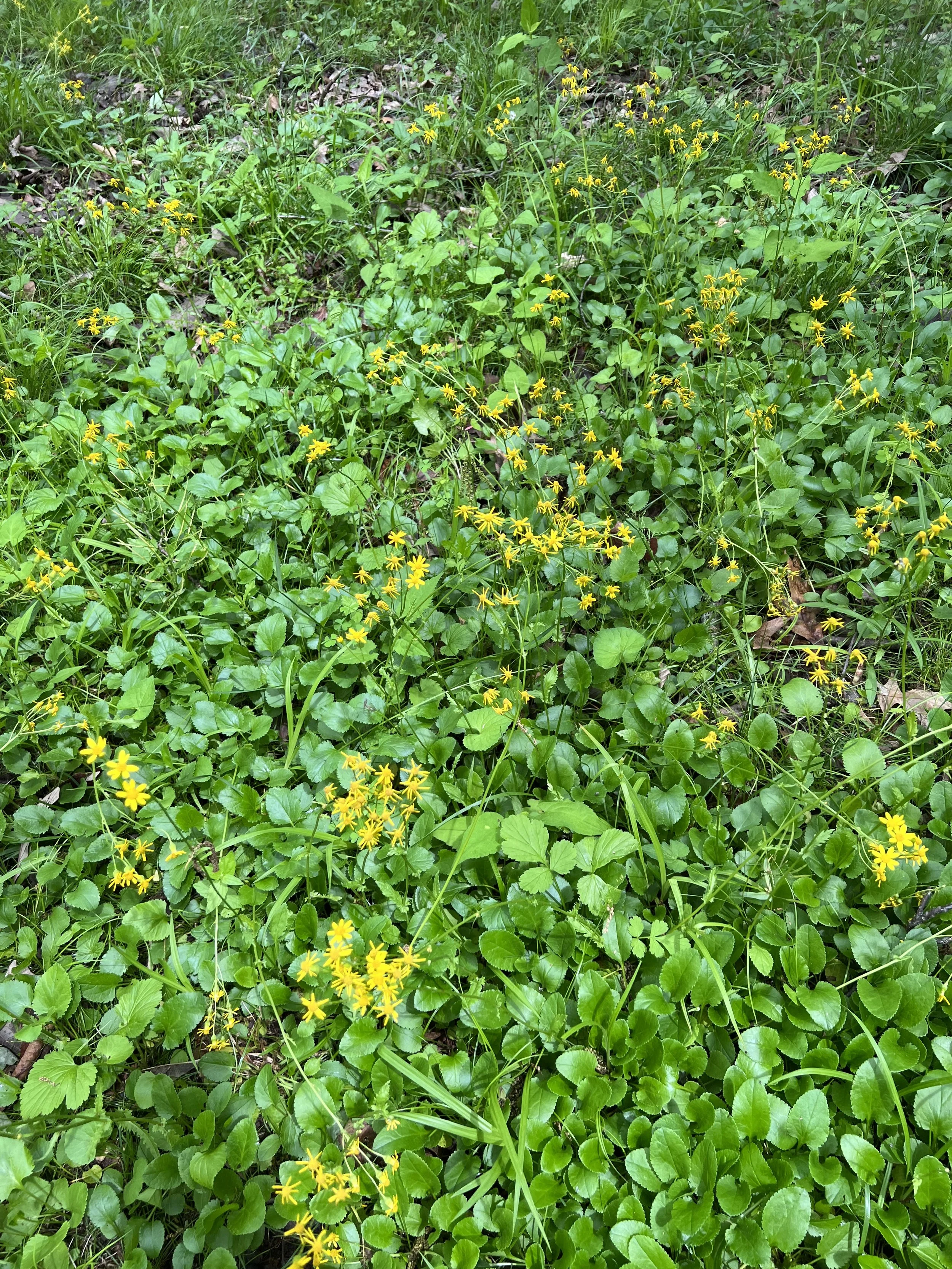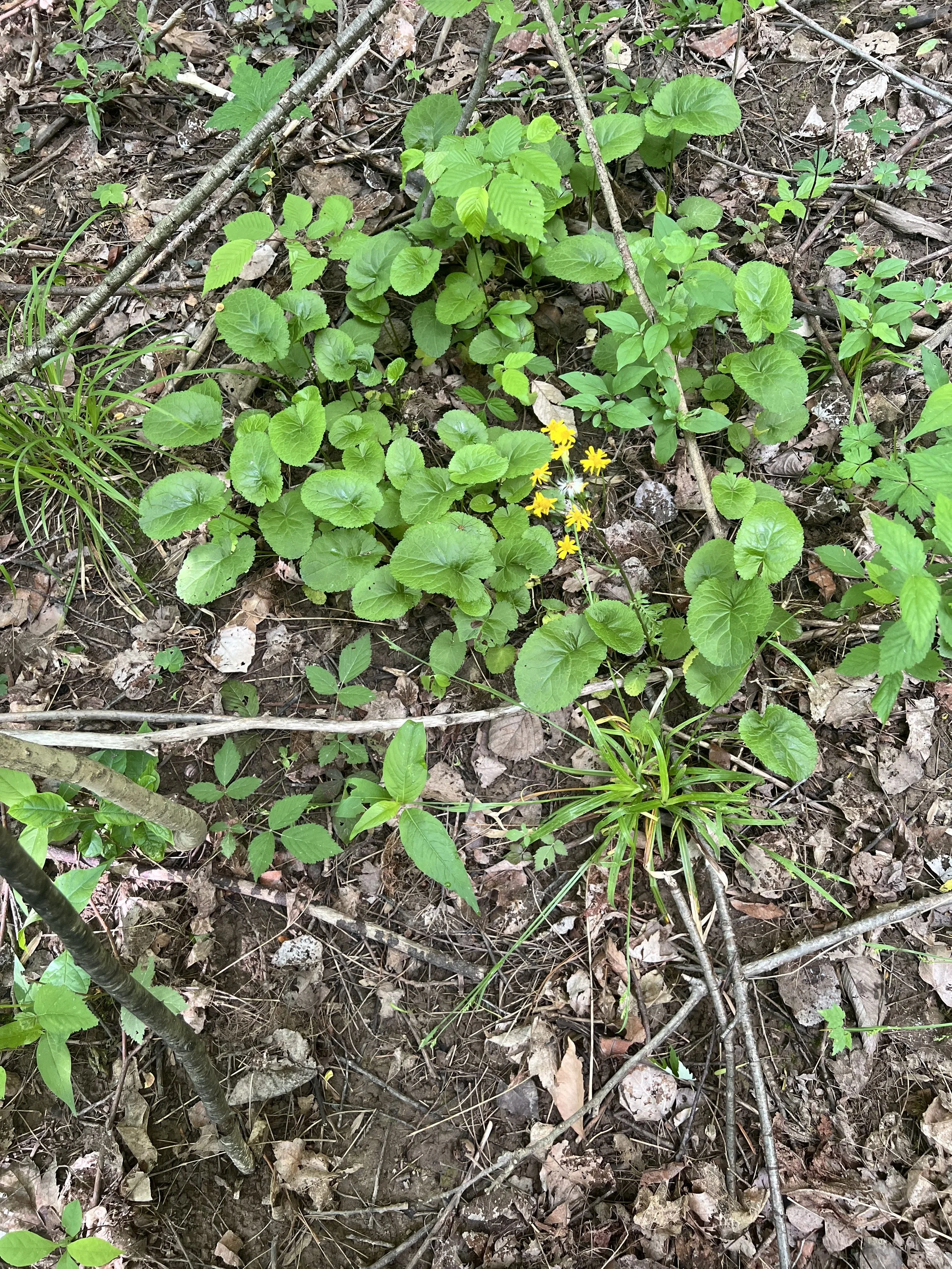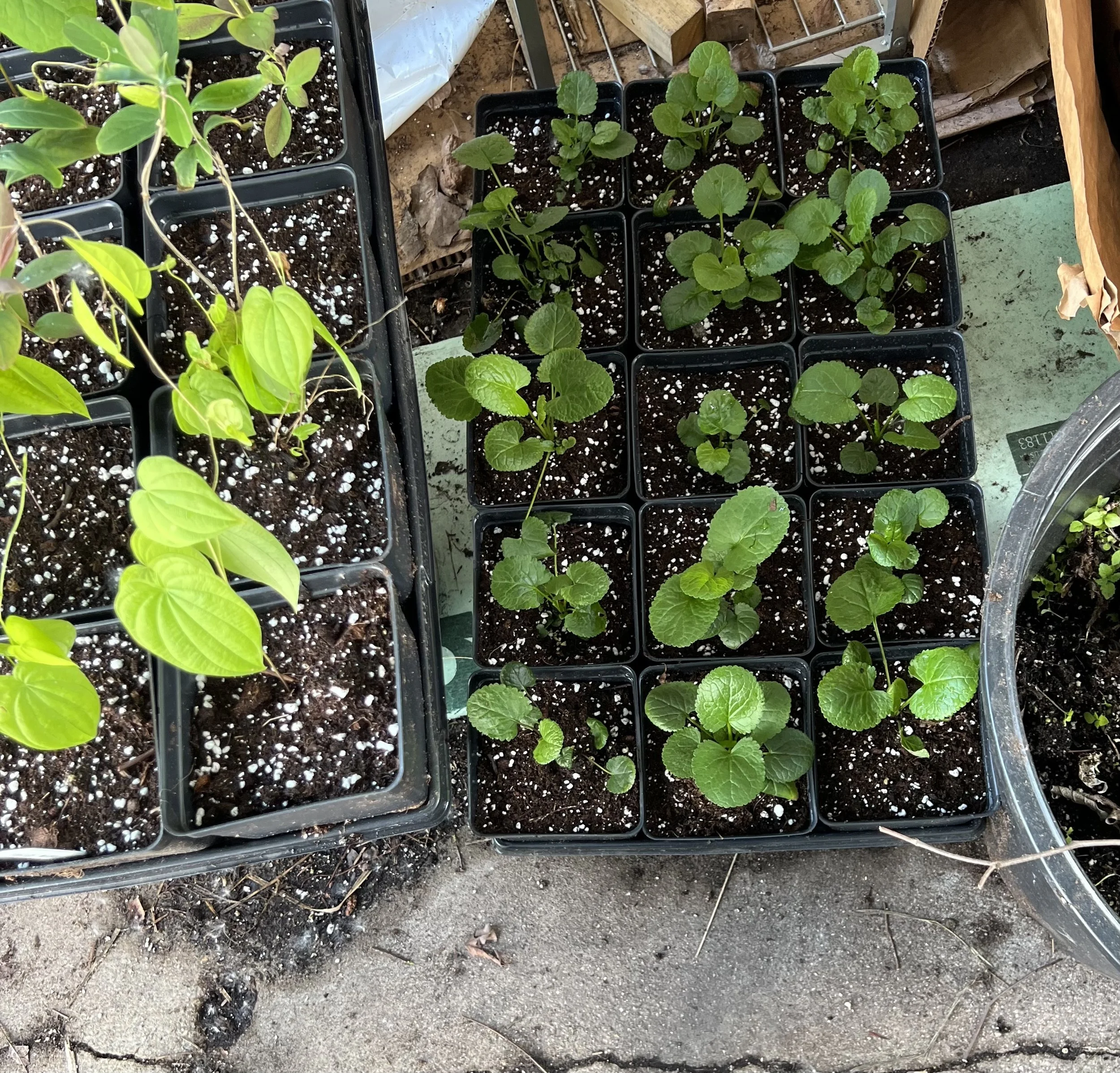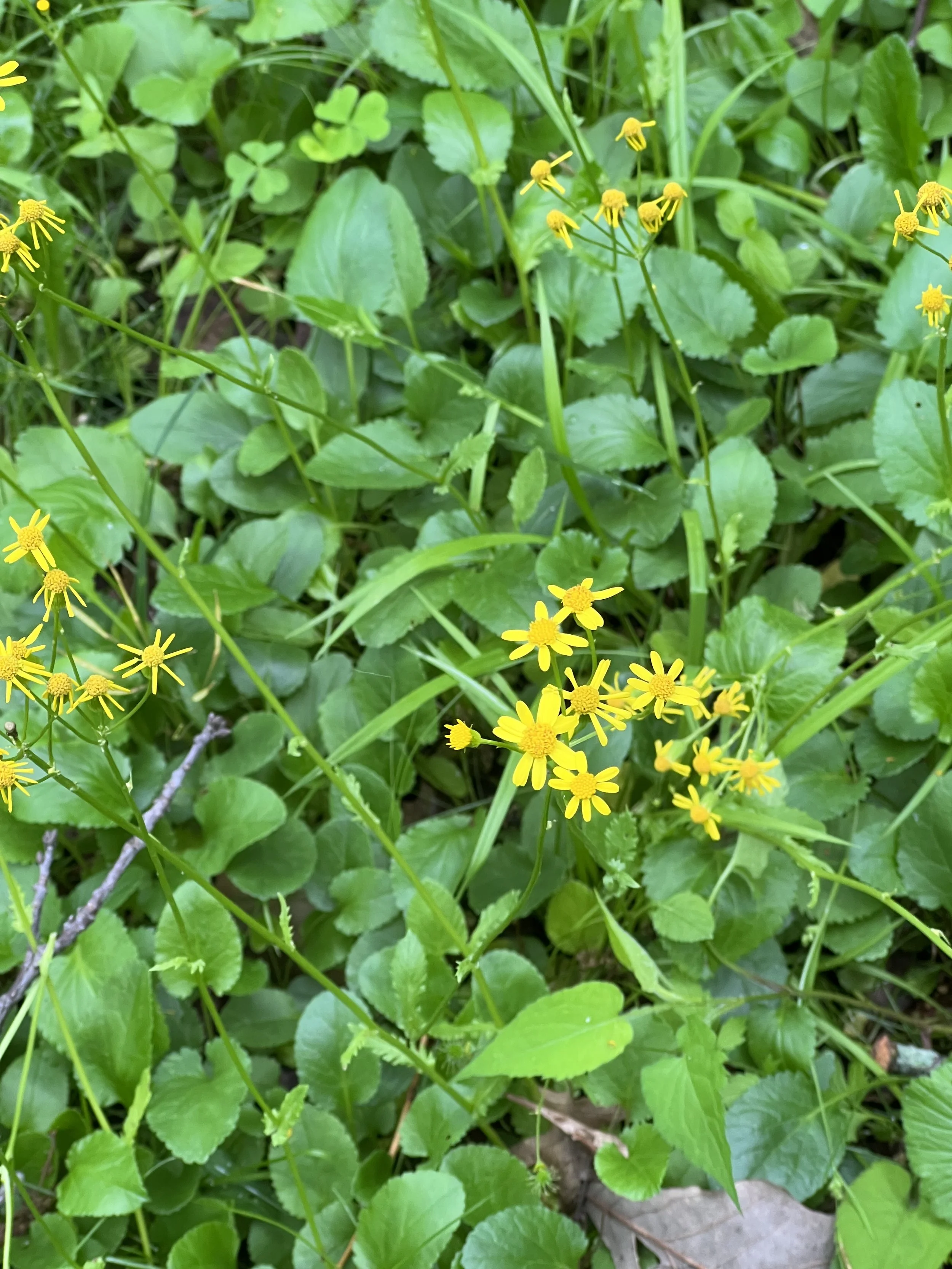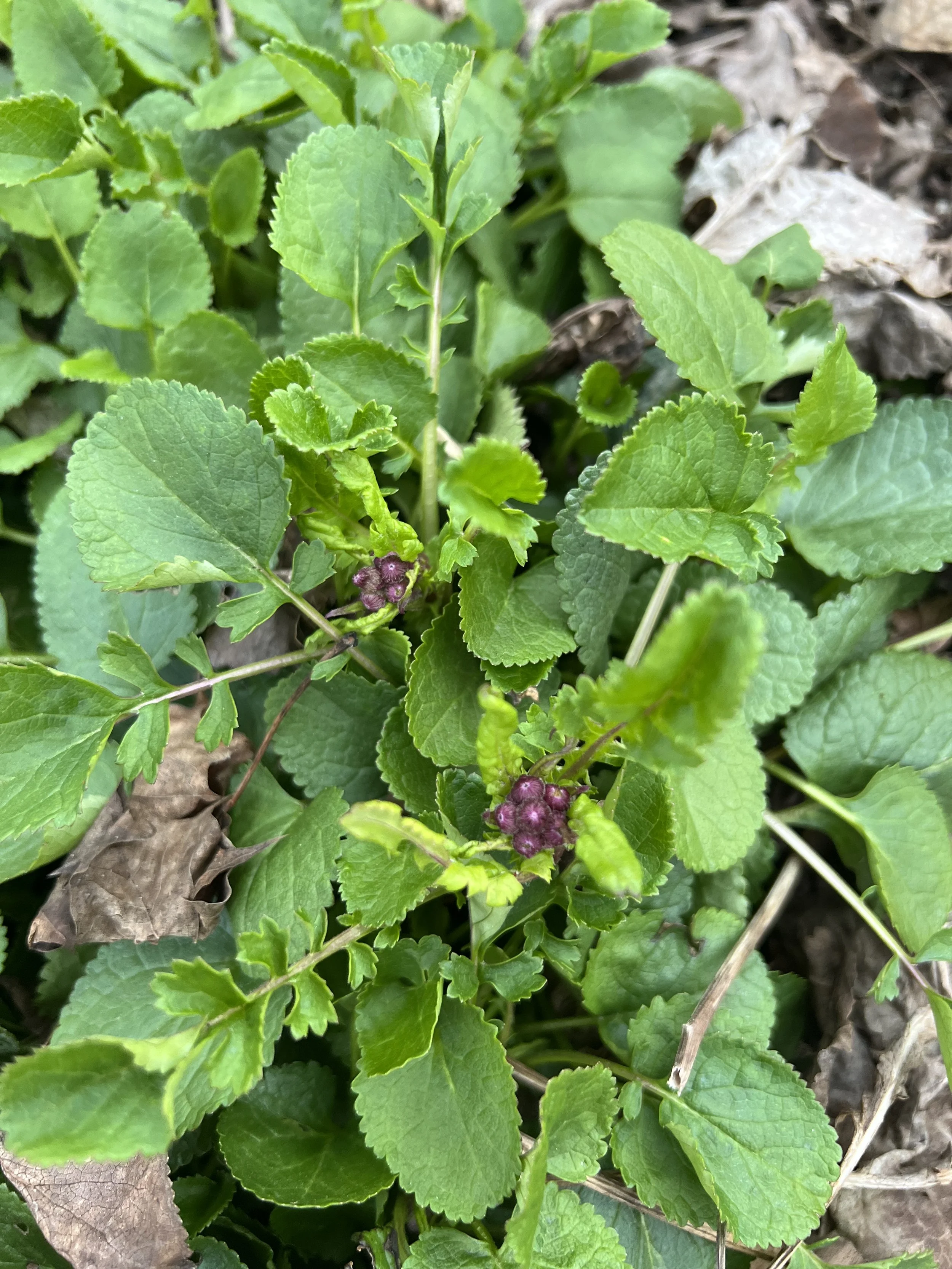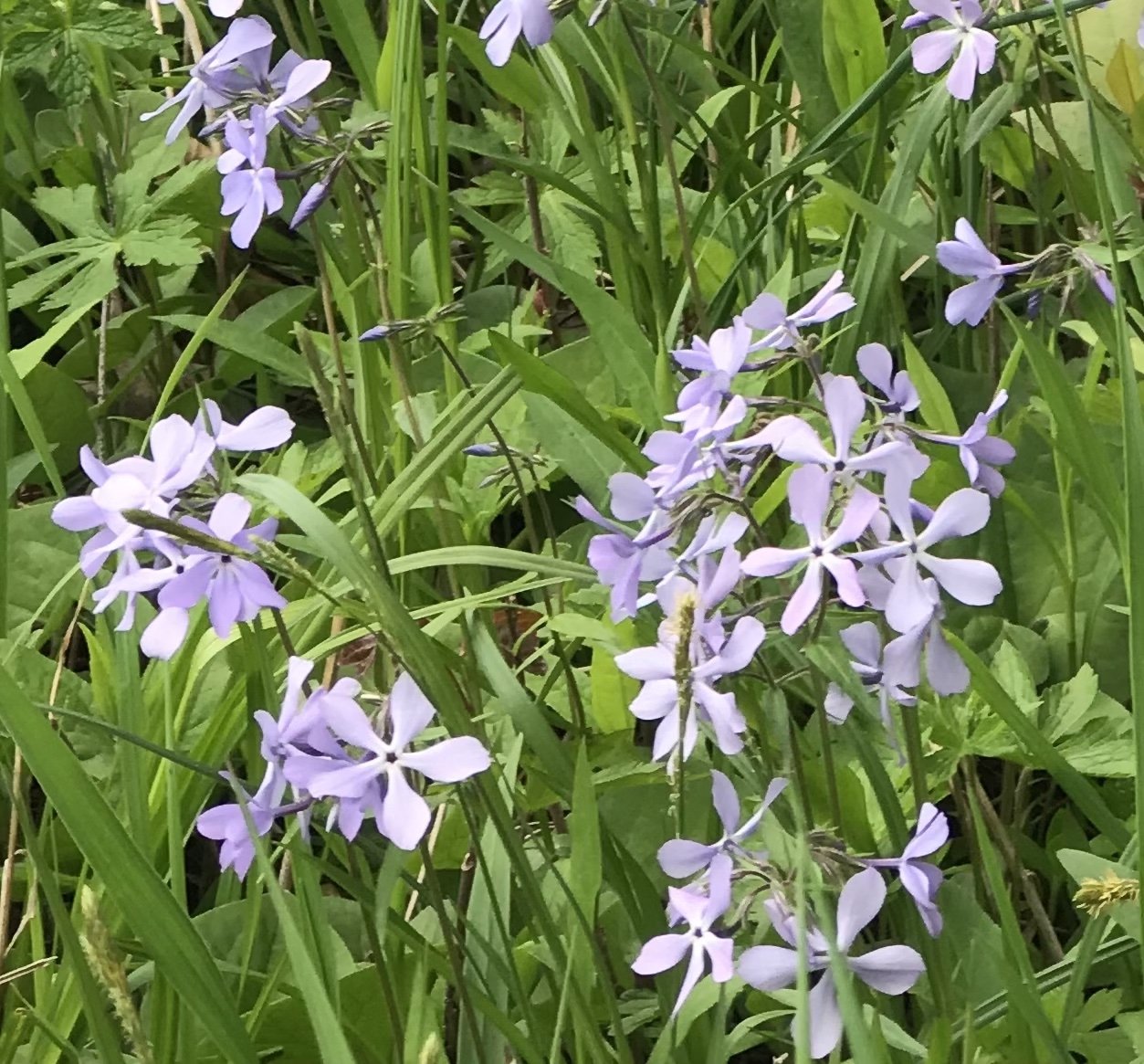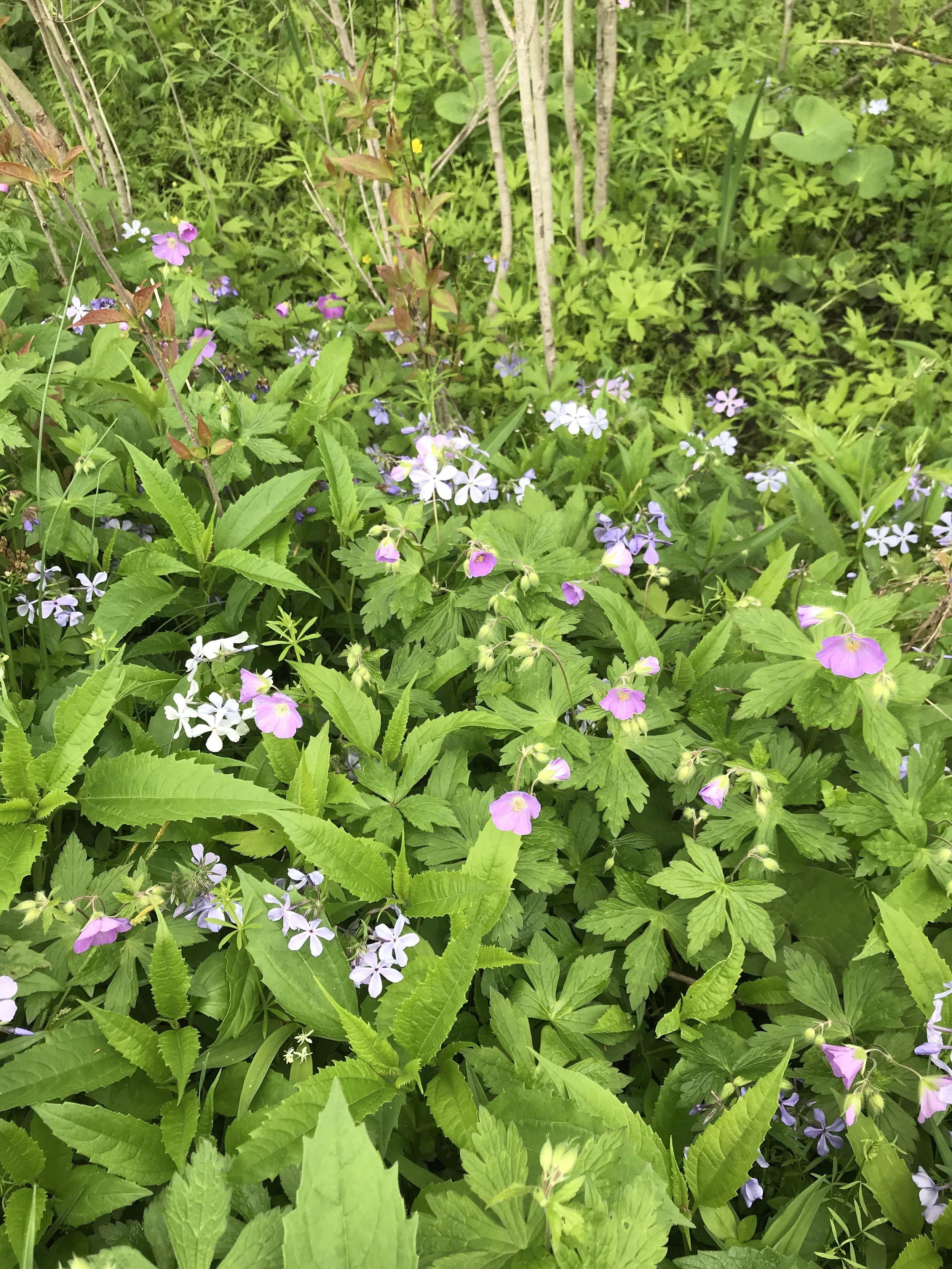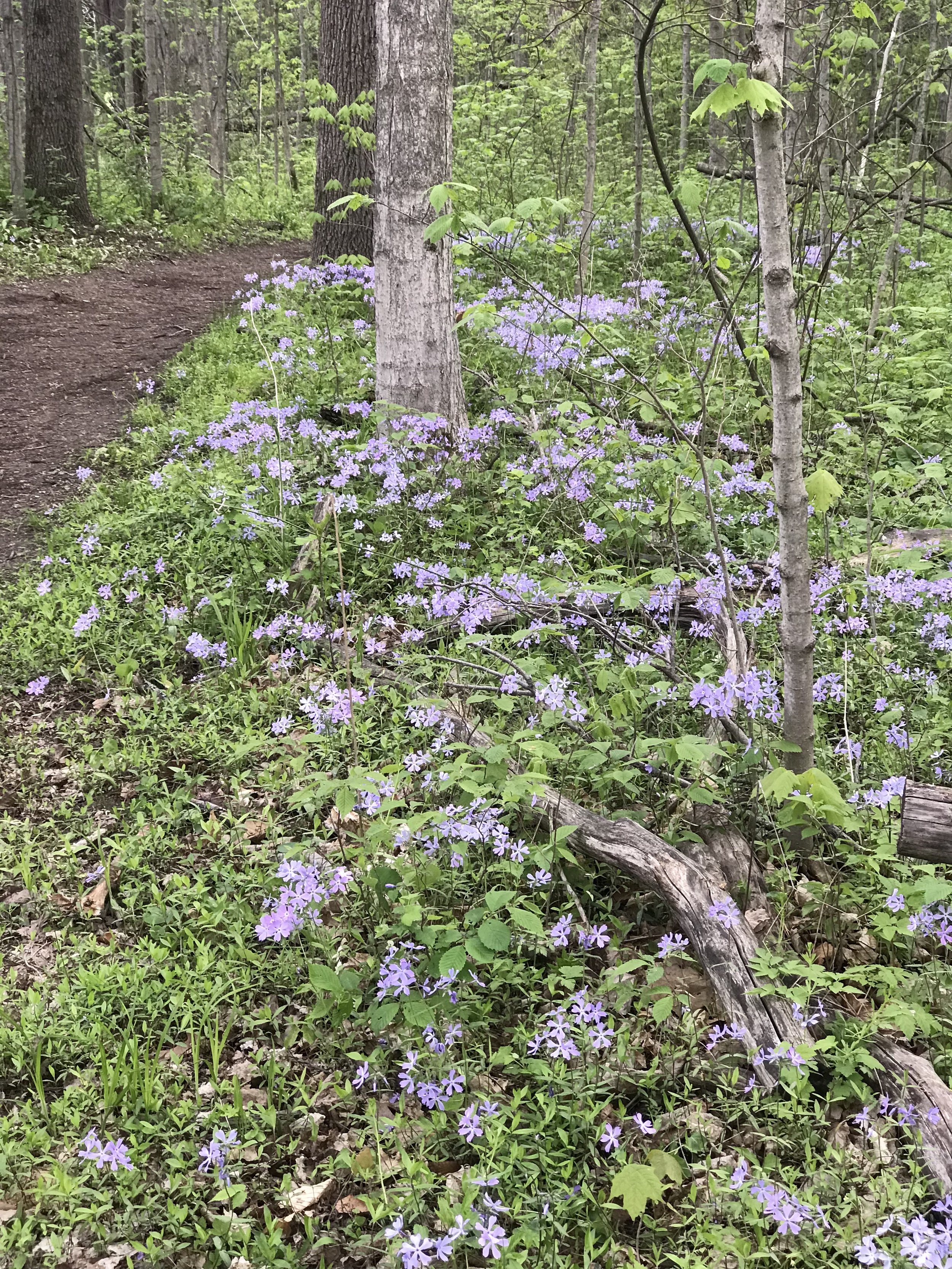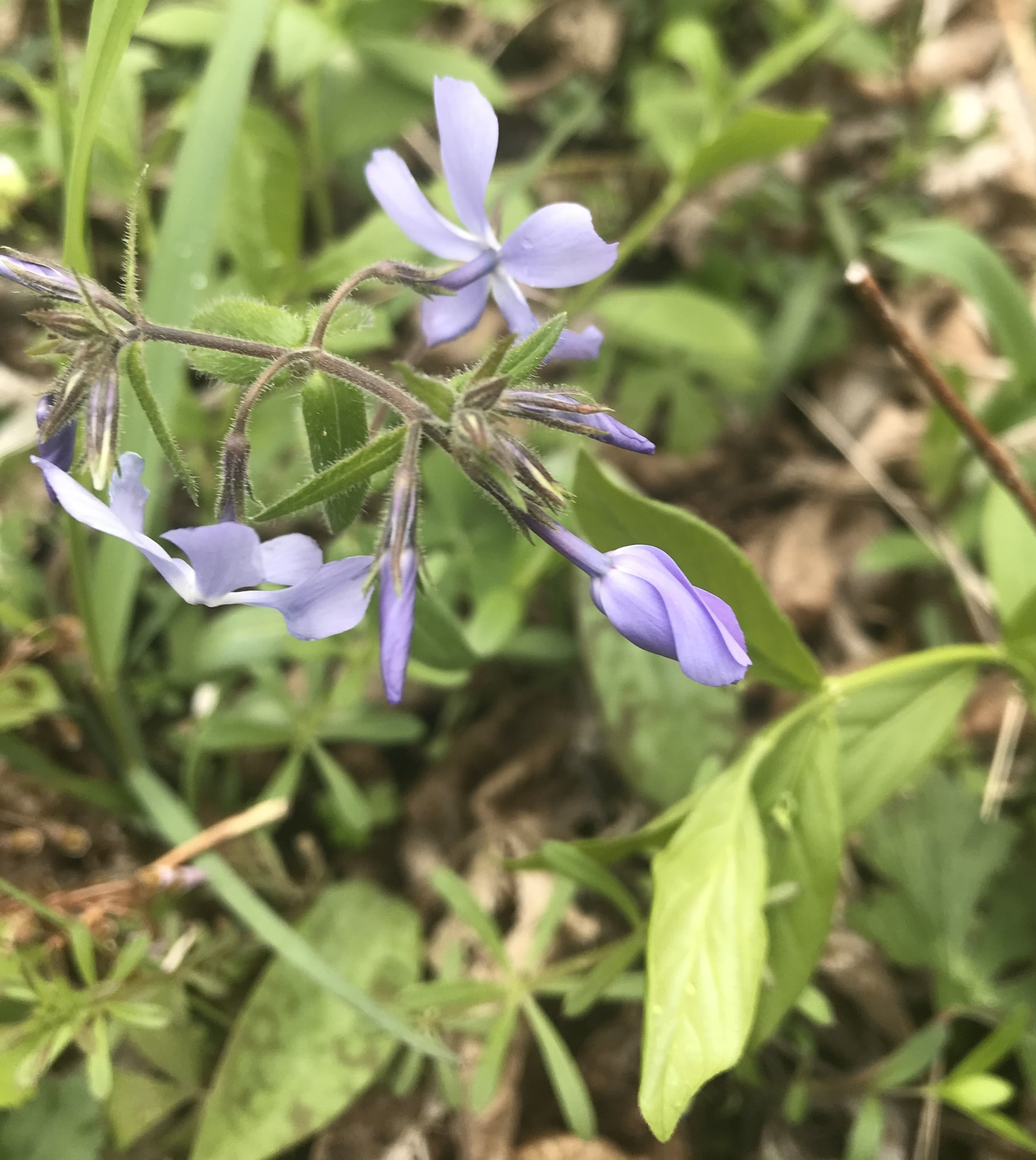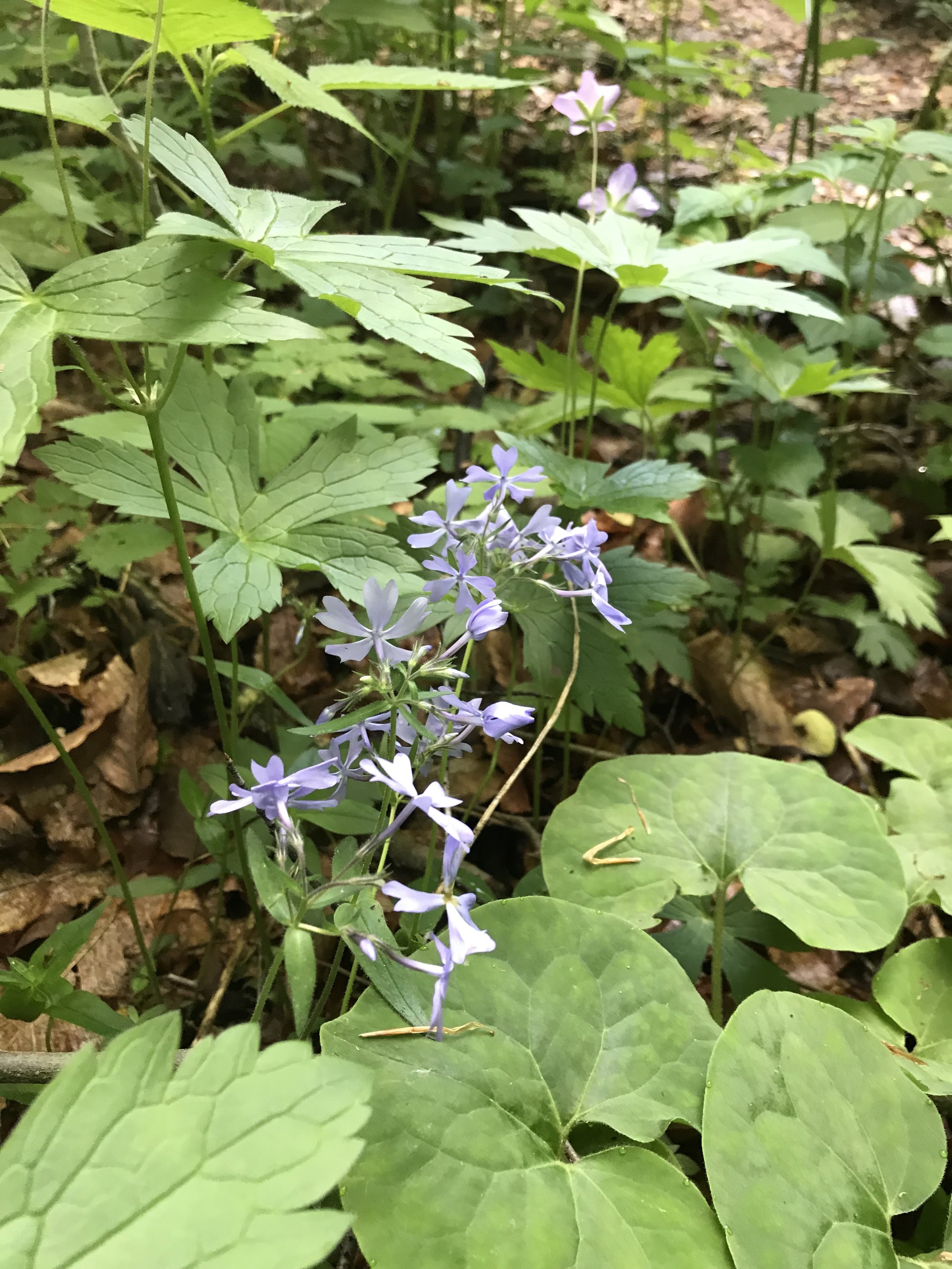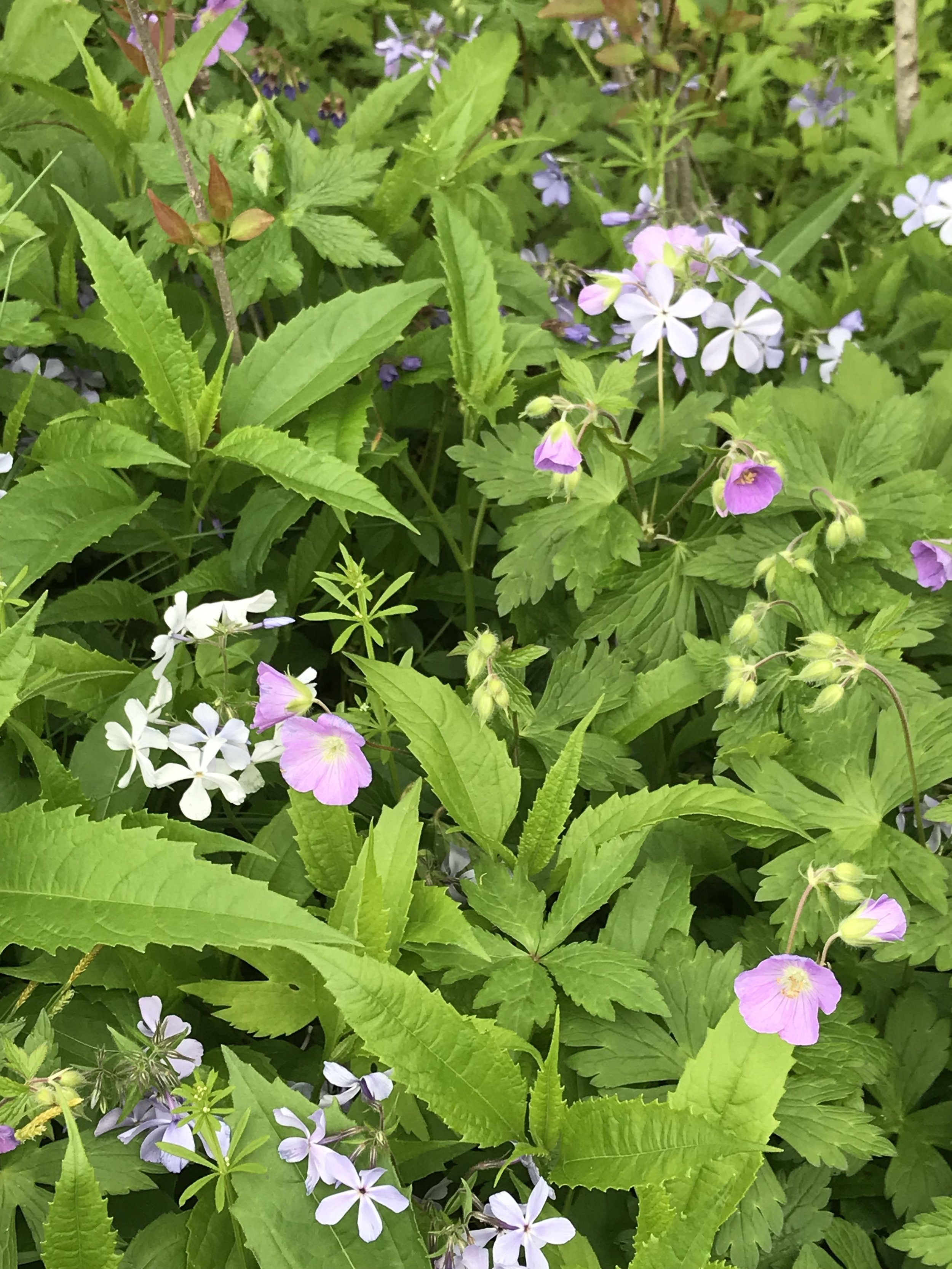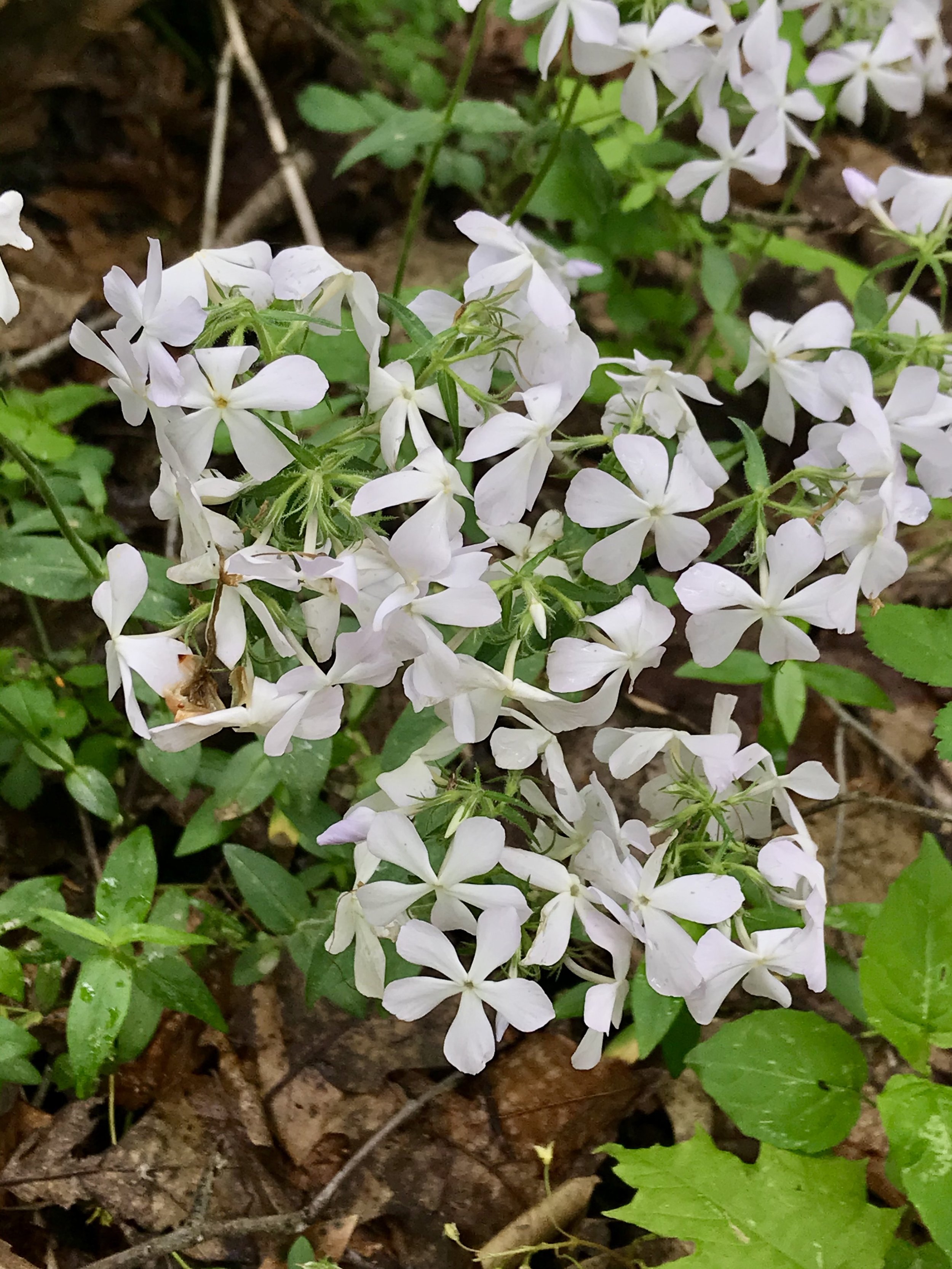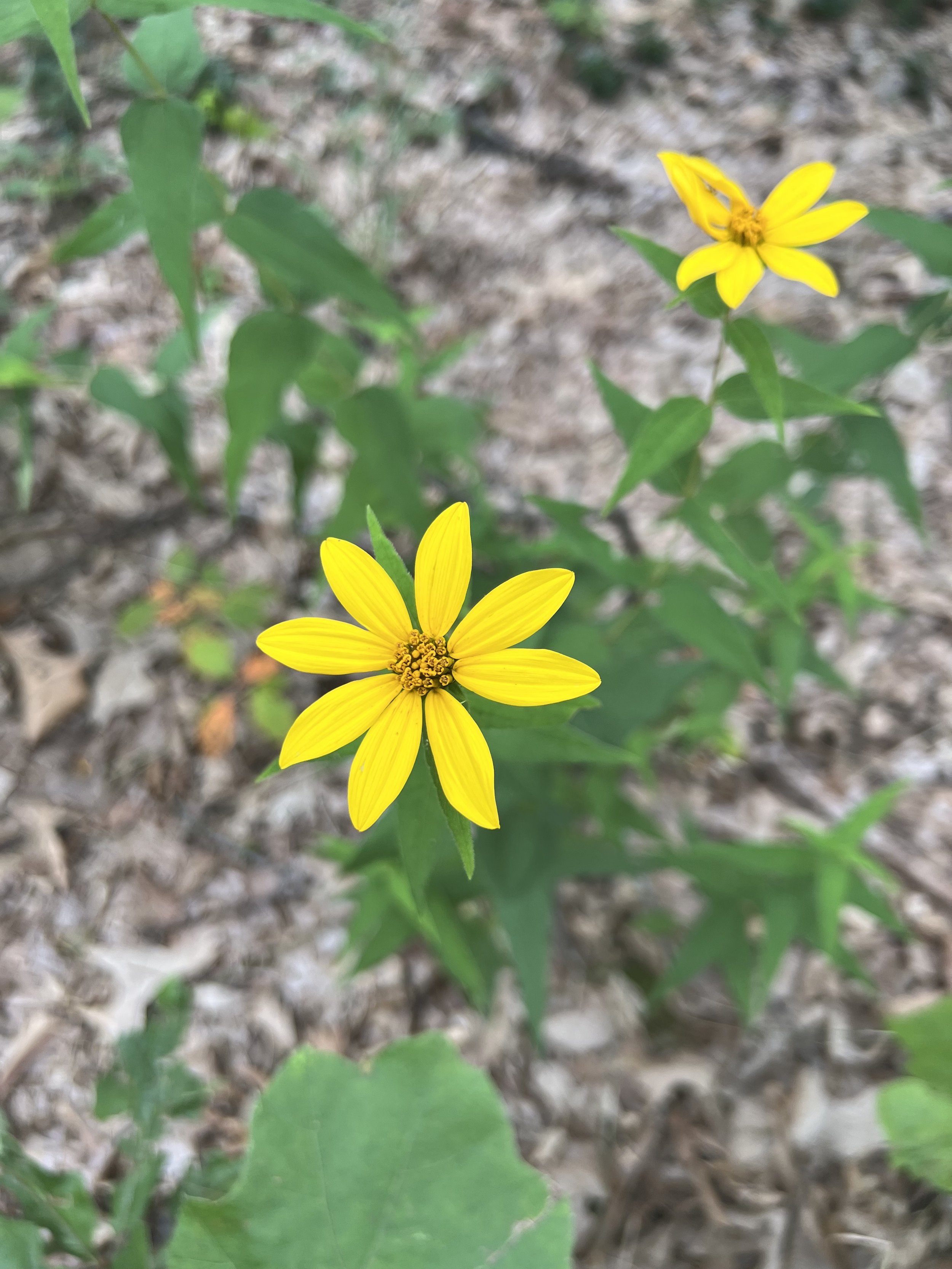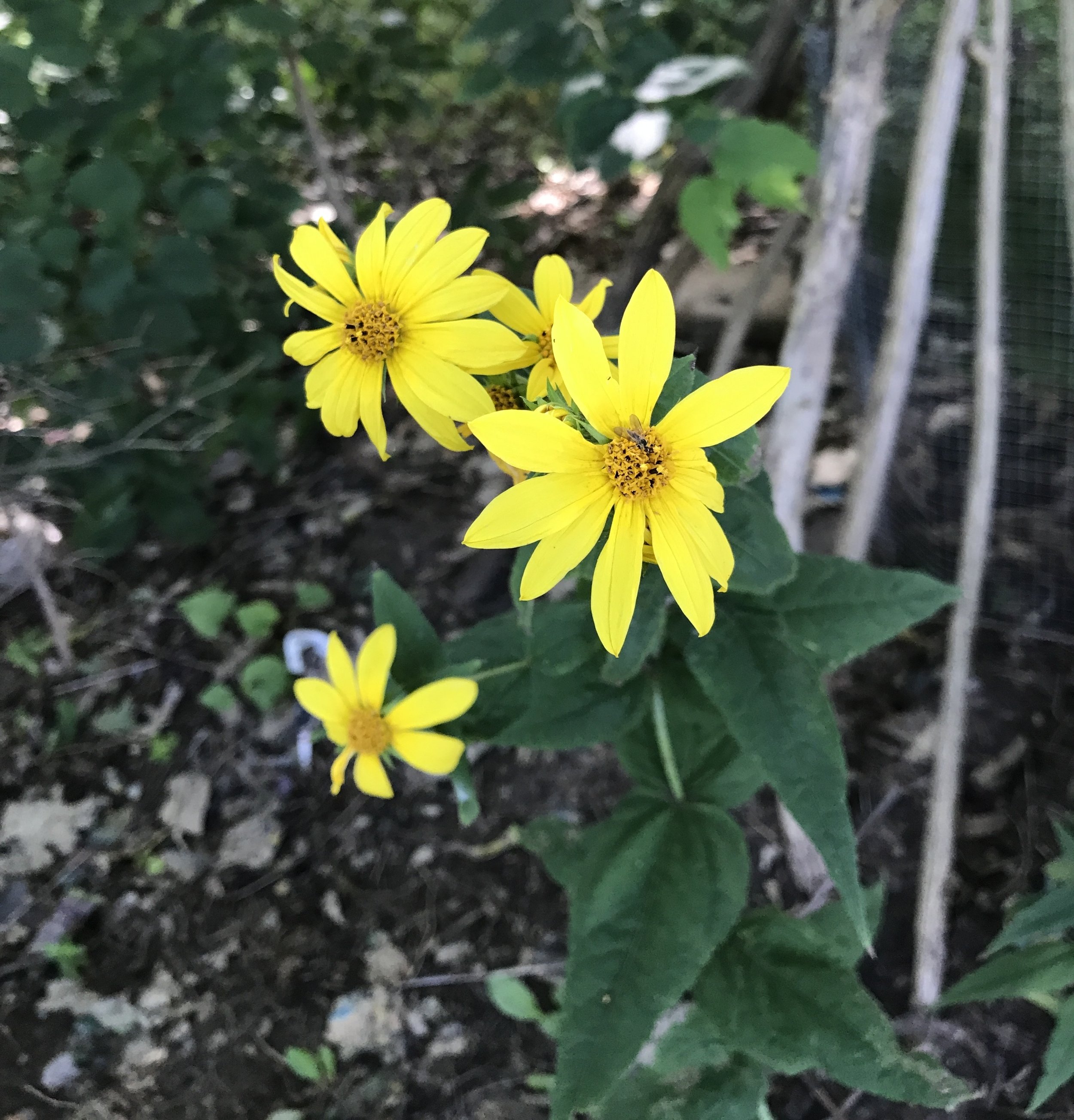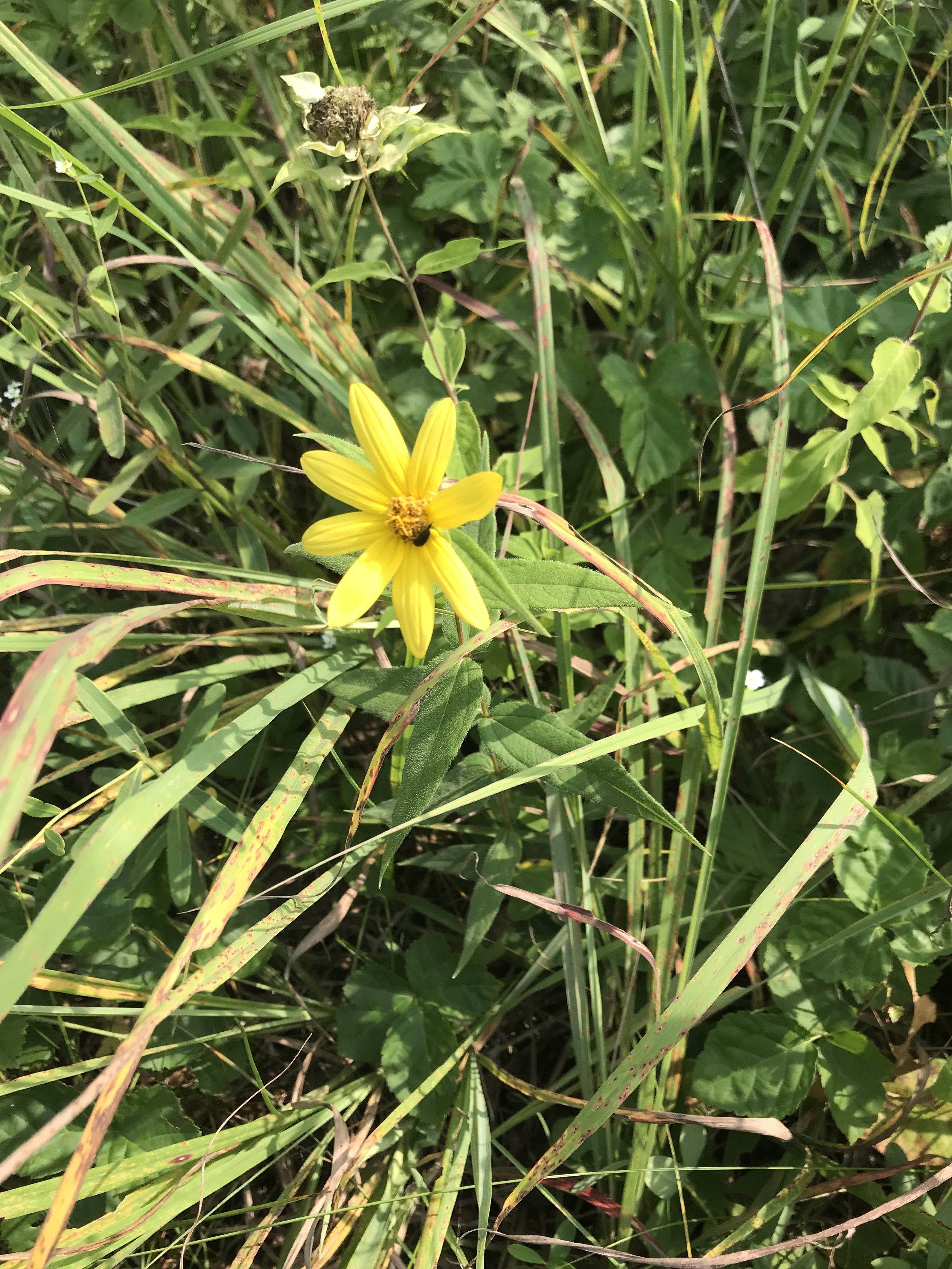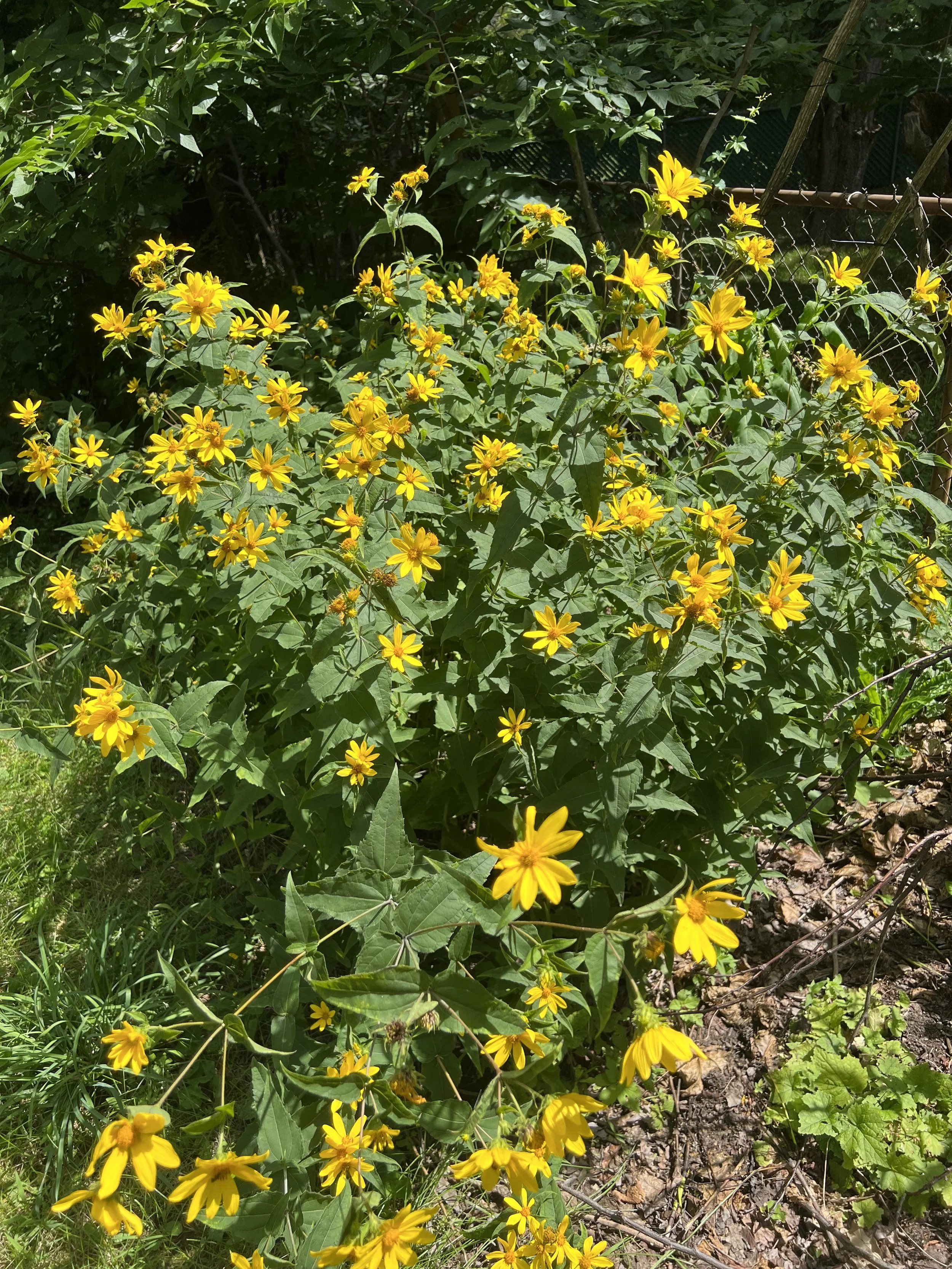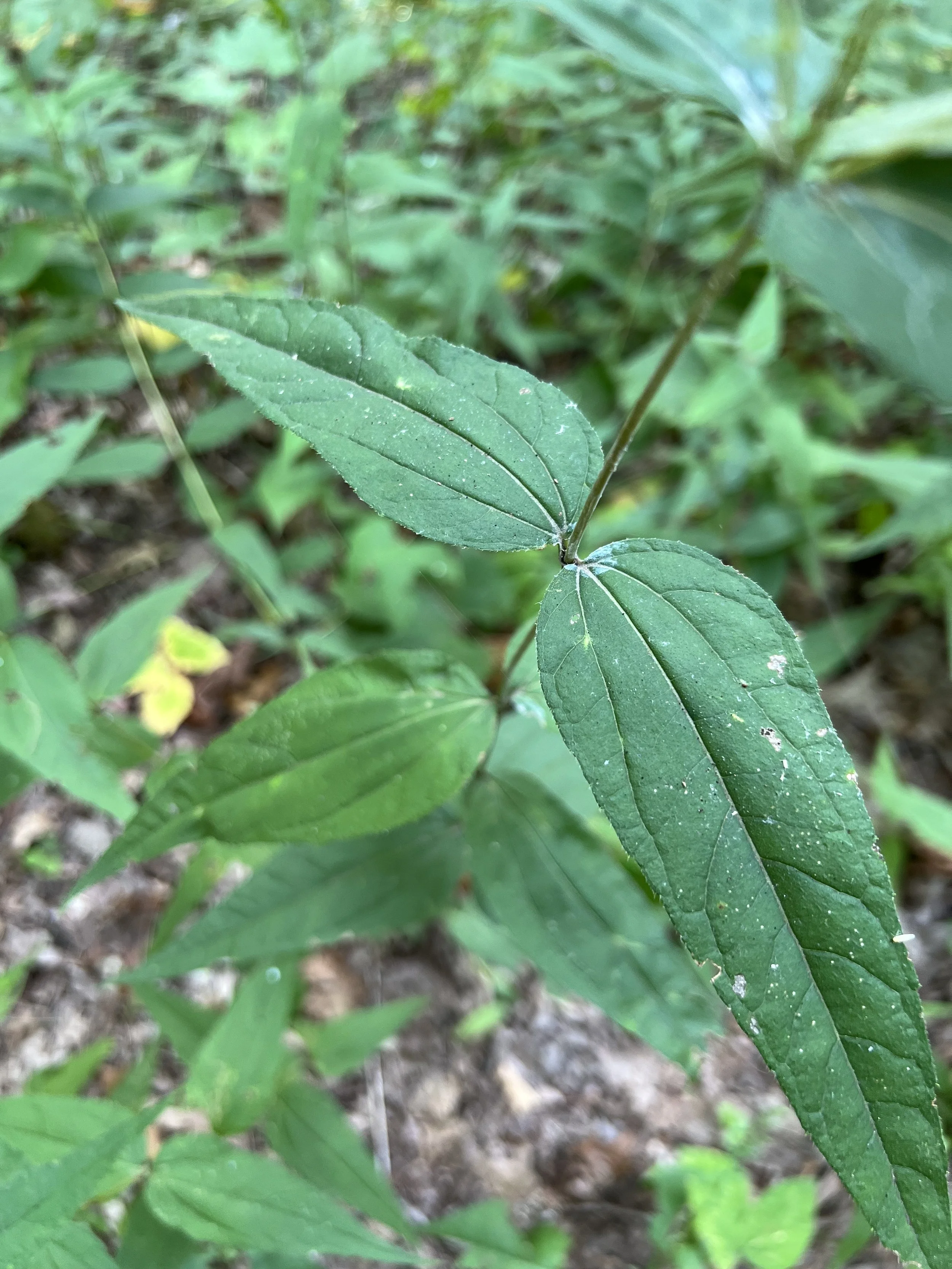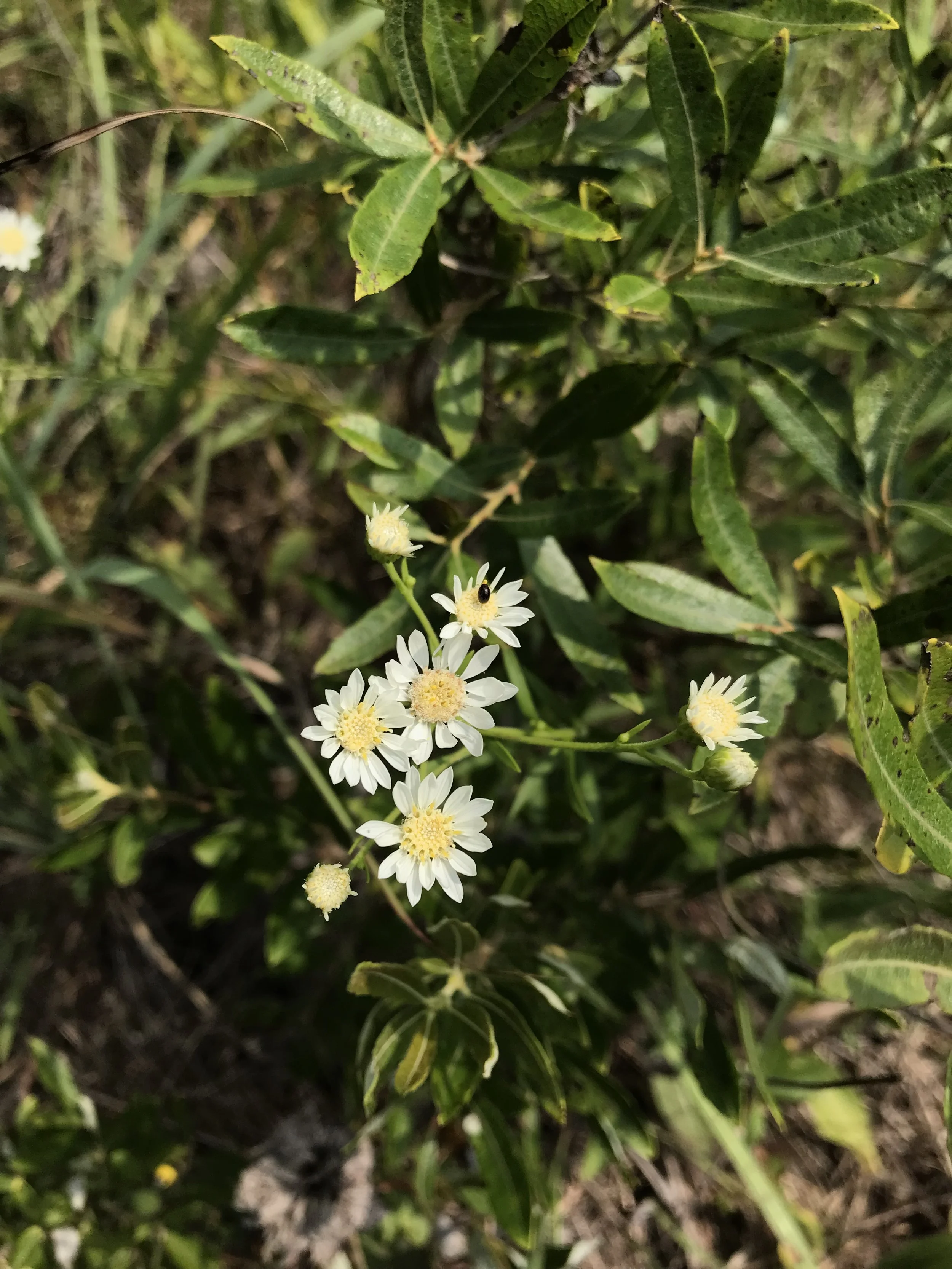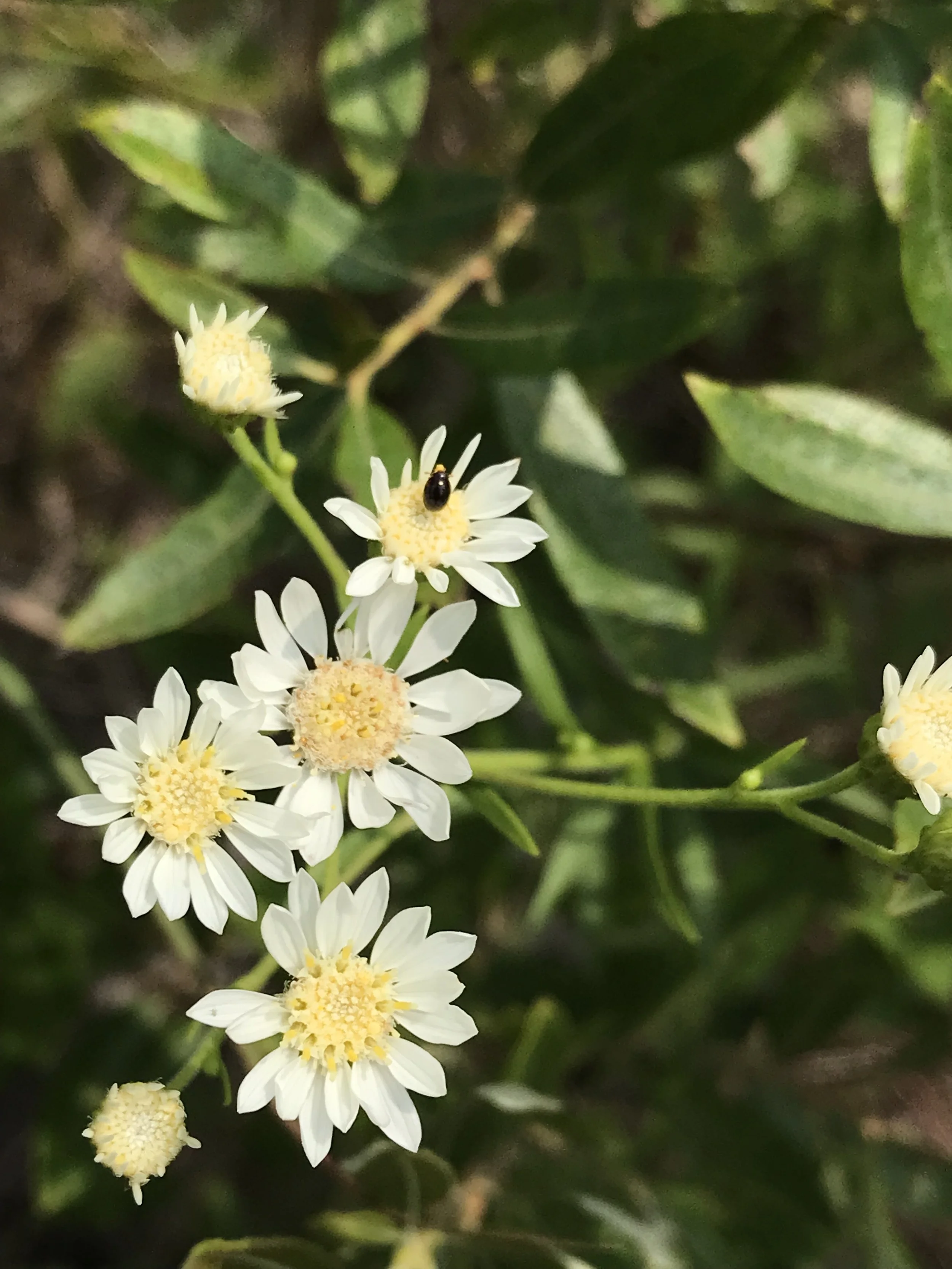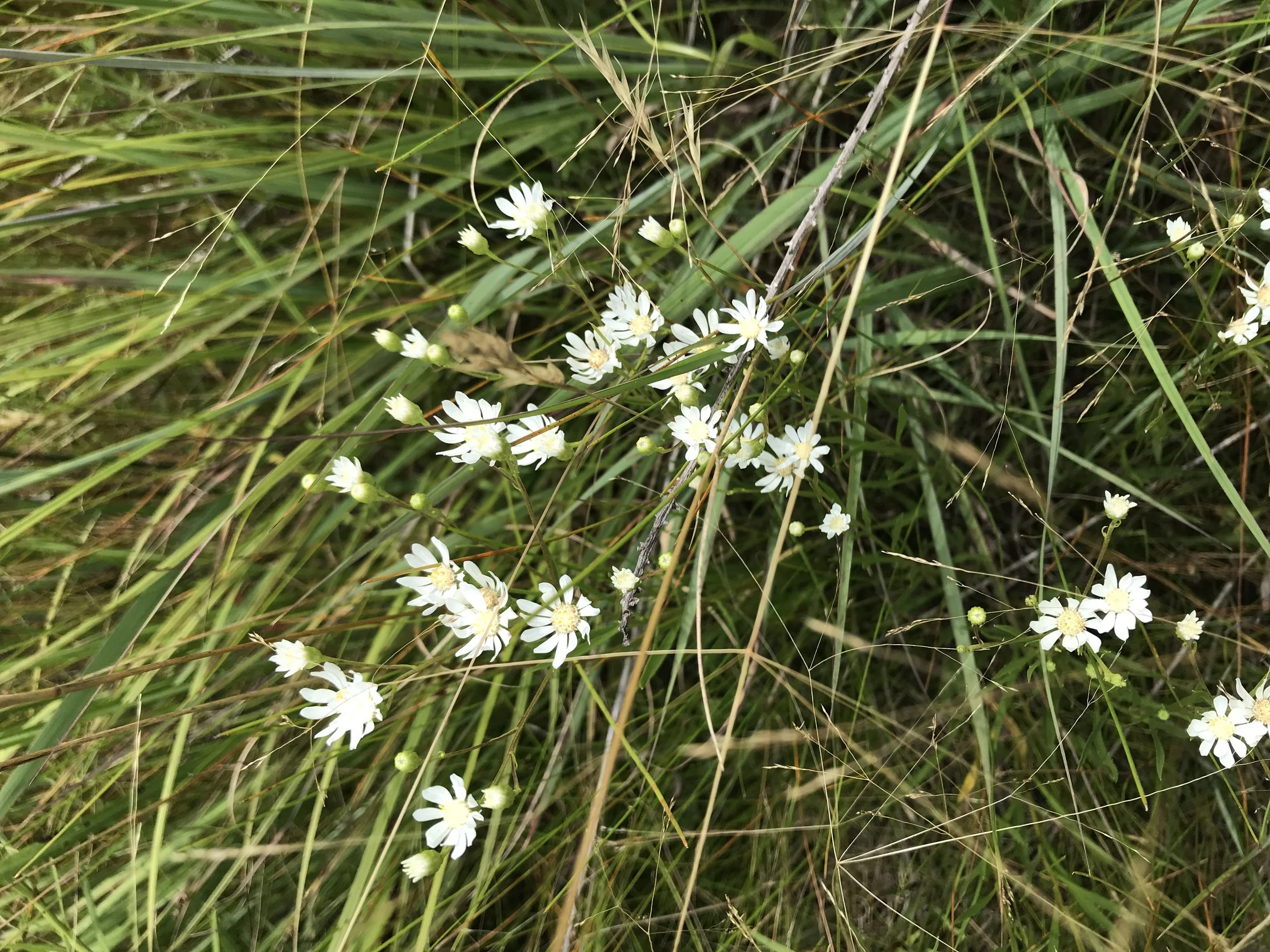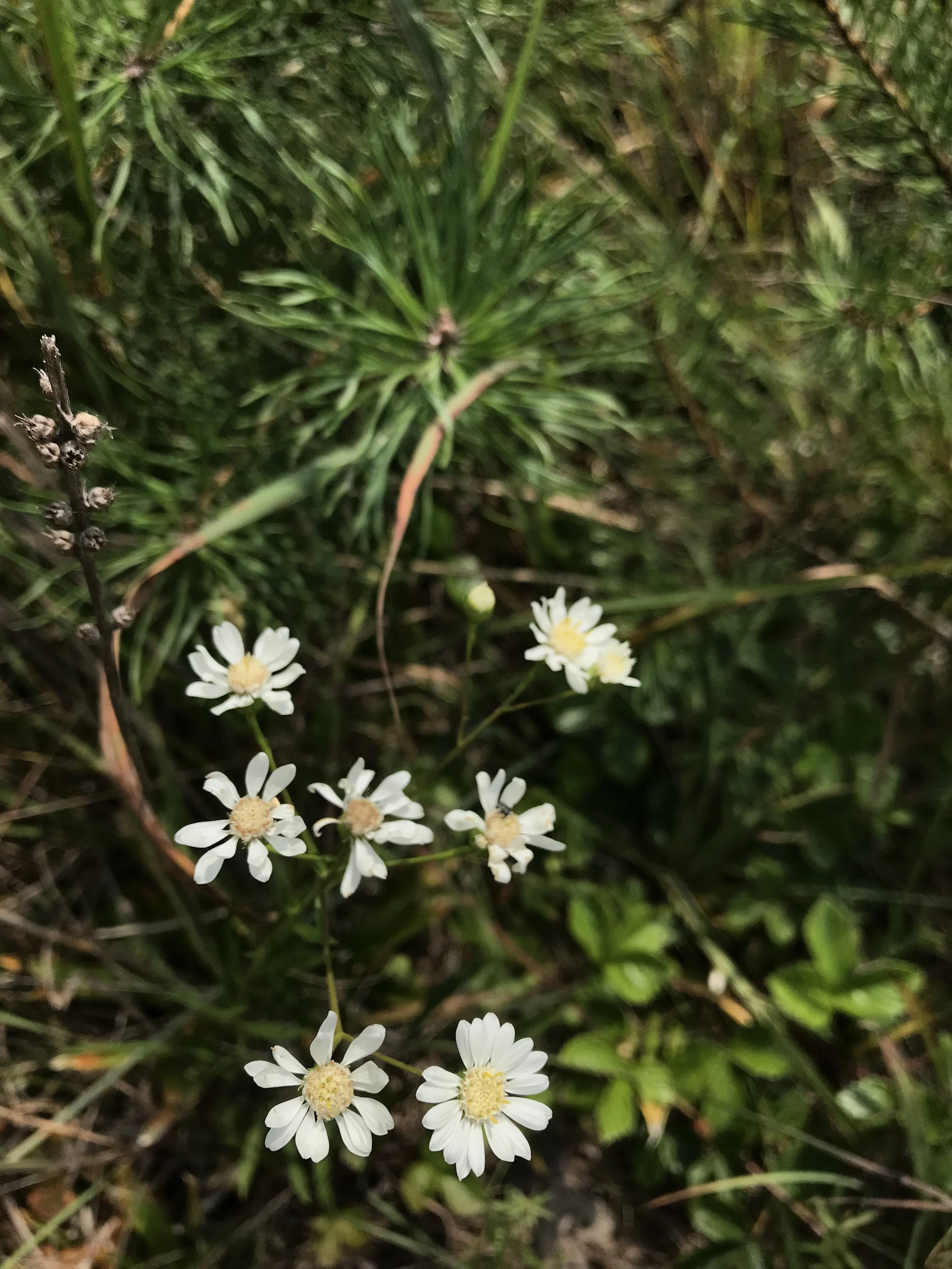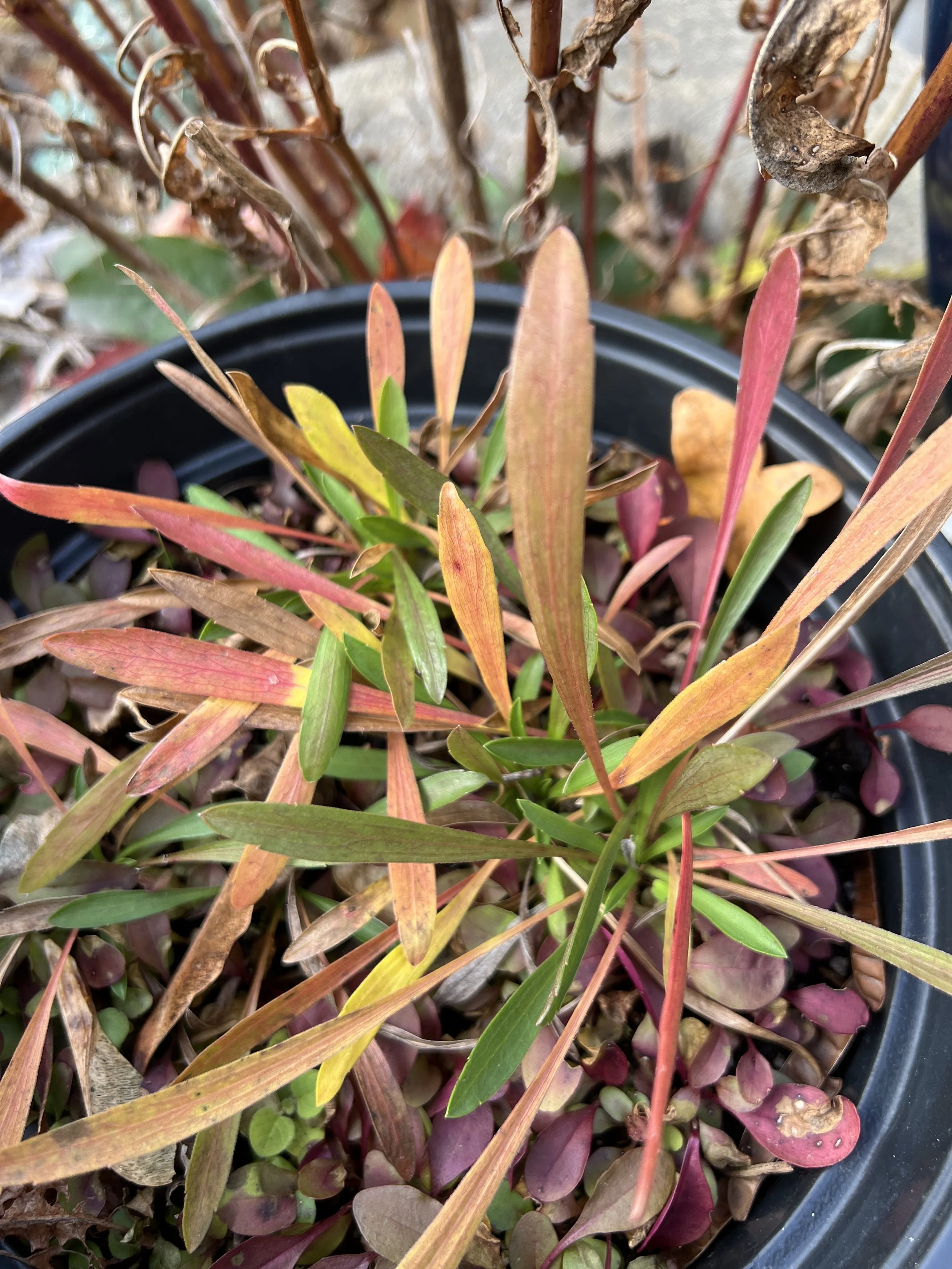 Image 1 of 5
Image 1 of 5

 Image 2 of 5
Image 2 of 5

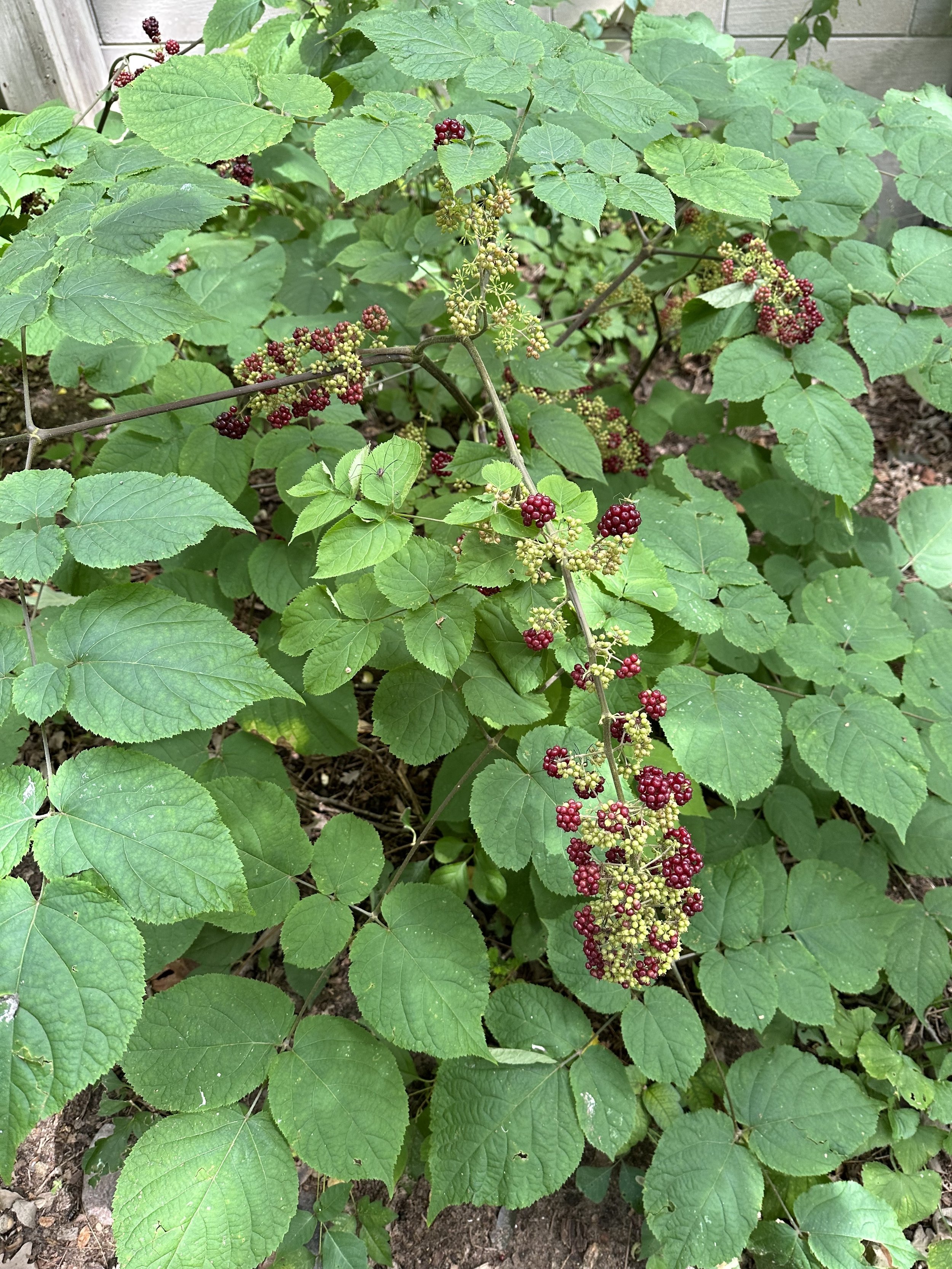 Image 3 of 5
Image 3 of 5

 Image 4 of 5
Image 4 of 5

 Image 5 of 5
Image 5 of 5






Spikenard (Aralia racemosa)
from $3.50
Spikenard is related to Sarsparilla and is in the same family as Ginseng. It is a shrub-like plant growing up to five feet tall. Though it is shrub-like in mid-summer, it is an herbaceous plant that grows up from the ground every year, which is unusual for its girth and stature. It is usually found in rich, moist beech-maple forests. Spikenard has large compound leaves that can be up to 2.5 feet long and the leaflets are generally heart shaped and pointy.
Tiny, white flowers form in clusters on a long wand. The flowers bloom in July. These flowers are much-loved by especially tiny pollinators, so they buzz with activity while in bloom. Flowers, when pollinated, give way to green berries that eventually turn dark purple. The berries, which are actually a berry-like capsule, are eaten by birds who then disperse the seeds. The berries can also be eaten by humans either raw or cooked. Check out this source for more information, here.
This plant can grow quite tall and is often wider than it is tall. Take care when planting that you give ample space as it can overshadow other plants.
Companion Plants: wild columbine, maidenhair fern, marginal wood fern, Spinulose wood fern, cucumber root, blue cohosh, baneberries, wild leeks, bladder sedge, pretty sedge
Spikenard (Aralia racemosa)
Michigan Flora reference page for state distribution: Spikenard
height: 3-5 feet
bloom time: July
soil: wet-medium, rich loam, but also clay
sun: part-sun, shade
plant spacing: 3-5’
flower: tiny, white (berries: purple)
life cycle: perennial
family: Araliaceae
seed source: Michigan
Get notified by email when this product is in stock.
Spikenard is related to Sarsparilla and is in the same family as Ginseng. It is a shrub-like plant growing up to five feet tall. Though it is shrub-like in mid-summer, it is an herbaceous plant that grows up from the ground every year, which is unusual for its girth and stature. It is usually found in rich, moist beech-maple forests. Spikenard has large compound leaves that can be up to 2.5 feet long and the leaflets are generally heart shaped and pointy.
Tiny, white flowers form in clusters on a long wand. The flowers bloom in July. These flowers are much-loved by especially tiny pollinators, so they buzz with activity while in bloom. Flowers, when pollinated, give way to green berries that eventually turn dark purple. The berries, which are actually a berry-like capsule, are eaten by birds who then disperse the seeds. The berries can also be eaten by humans either raw or cooked. Check out this source for more information, here.
This plant can grow quite tall and is often wider than it is tall. Take care when planting that you give ample space as it can overshadow other plants.
Companion Plants: wild columbine, maidenhair fern, marginal wood fern, Spinulose wood fern, cucumber root, blue cohosh, baneberries, wild leeks, bladder sedge, pretty sedge
Spikenard (Aralia racemosa)
Michigan Flora reference page for state distribution: Spikenard
height: 3-5 feet
bloom time: July
soil: wet-medium, rich loam, but also clay
sun: part-sun, shade
plant spacing: 3-5’
flower: tiny, white (berries: purple)
life cycle: perennial
family: Araliaceae
seed source: Michigan

